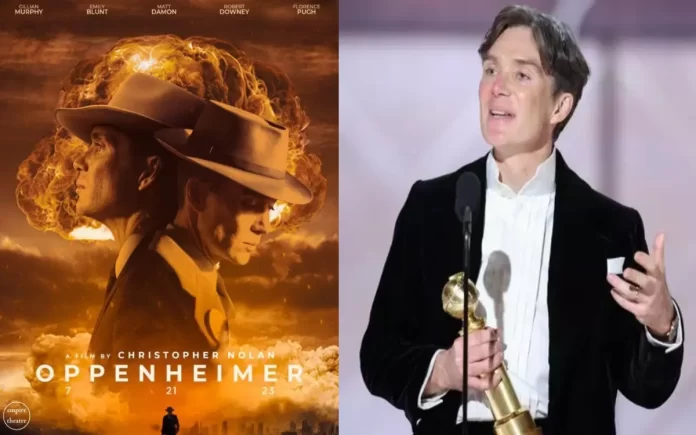Tokyo: The much-anticipated screening of the Academy Award-winning film “Oppenheimer” finally debuted in Japan on Friday, marking the end of an eight-month wait filled with controversy and apprehension surrounding its nuclear-themed narrative, particularly in a nation scarred by atomic bombings.
Directed by Christopher Nolan, the film chronicles the life of U.S. physicist J. Robert Oppenheimer, the central figure in the development of the atomic bomb, and has amassed nearly $1 billion in global box office revenue.
Read More: Tajikistan Detains 9 Suspects in Connection with Russian Concert Hall Attack: Report
Despite its global success, Japan, a significant market for Hollywood, had been excluded from screenings until now, given the sensitive historical context of nuclear devastation inflicted upon Hiroshima and Nagasaki during World War Two, resulting in the loss of over 200,000 lives.
Reflecting on the film, Hiroshima resident Kawai expressed admiration for its cinematic merits while grappling with its portrayal of the atomic bomb. “Of course, this is an amazing film deserving of its Academy Awards,” remarked the 37-year-old, known only by his family name. “However, the depiction of the atomic bomb feels somewhat glorified, which made it emotionally challenging for me as someone with ties to Hiroshima.”
Kawai’s sentiments were echoed by other locals, with some expressing unease about certain scenes, particularly those involving Oppenheimer’s trial in the United States.
Read More: Elon Musk Announces Launch of Grok-1.5 AI Chatbot Next Week
To mitigate potential distress, Tokyo theaters displayed warning signs alerting viewers to the graphic nature of nuclear test images depicted in the film.
As reported by the international news agency Reuters, upon viewing “Oppenheimer”, retired Hiroshima resident Agemi Kanegae commended its cinematic value but acknowledged discomfort with certain scenes, notably the trial sequence. “The film was very compelling, but I found some moments unsettling,” remarked the 65-year-old.
Initially bypassed in the film’s global release plans, Japan eventually secured a screening after the Oscar ceremonies, courtesy of Bitters End, a local distributor specializing in independent cinema.
Read More: U.S. Sees Moderate Inflation Rise in February as Consumer Spending Soars
Speaking before the screening, atomic bomb survivor Teruko Yahata expressed anticipation, hoping the film would reignite conversations surrounding nuclear disarmament.
Yahata’s perspective, shaped by personal experience, resonated with 19-year-old student Rishu Kanemoto, who emphasized empathy for Oppenheimer’s complex role in history. “While Hiroshima and Nagasaki suffered immensely, it’s essential to recognize the complexities of the individuals involved,” noted Kanemoto.



